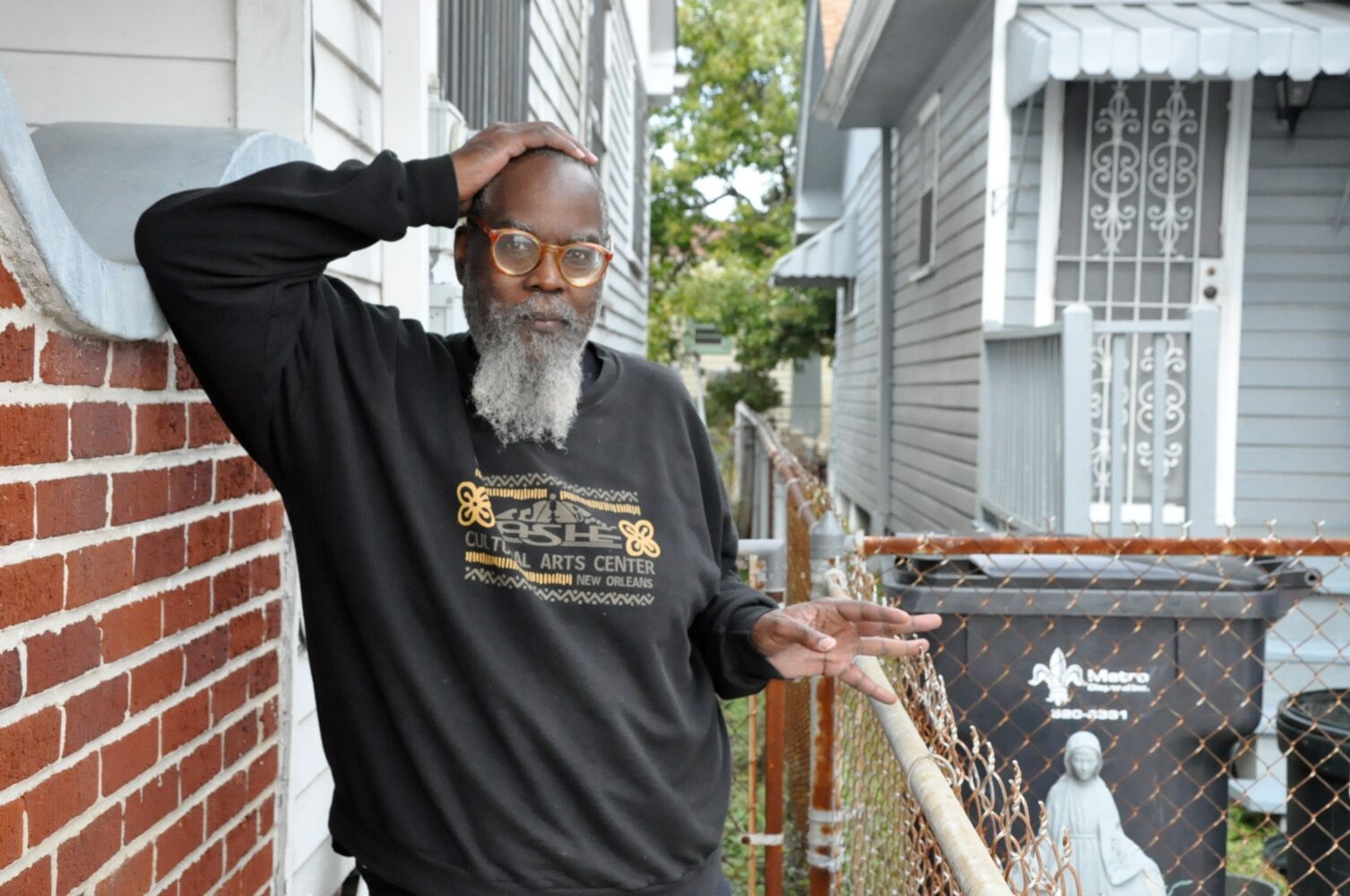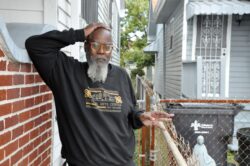Be about Beauty
Life and writing with Kalamu ya Salaam, LEH Lifetime Contributions to the Humanities Award winner
Published: February 28, 2022
Last Updated: June 9, 2023

Photo by Alex Lear
Kalamu ya Salaam.
“When I went to join, they did not have a touring company at that time, but they were still doing the writing and the drama workshops even though performances weren’t happening. Tom Dent was leading us through the writing workshop, and I think we met on Tuesday. Even though I did acting and script writing and poetry performance, I was more interested in writing. Tom was not an actor at all. Tom impressed me with his personality, and we became very good friends all the way up to his death.
“When you look at musical theater and musical performances, the Western concept is that you perform something based on what is written. What we were doing with BLKARTSOUTH was not necessarily concerned with what was written, and we certainly weren’t tied to doing long plays. How you did it was the issue—whether there was an element of improvisation, much as in music—so that sometimes it didn’t even matter what the composition was that you were performing. It was the way that you did it that made it your thing. There was no one set way to do things. That’s when the aesthetic became clear to me: there was no authority of the script you had to follow; rather, it was what you brought to it, and your interpretation of whatever it was. This was completely new to people who were trained formally to do theater.”
The distinguishing feature of ya Salaam’s life and work is that, politically, it has been grounded in an anti-colonization and decolonization movement. Throughout his prolific and illustrious career he has most importantly provided his peers, contemporaries, and future generations a blueprint for doing things another way. It takes more courage than is commonly understood to maintain such a commitment over the course of a lifetime and through changes of politics and fashion in Black literature.
“We didn’t want to be what the theater establishment said we had to be. We had other ideas. We were in conflict with the establishment, whether we knew it or not. The so-called classics didn’t mean anything to us, because they represented the cultural foundations of the academy and the establishment. And that was not our thing.”
Kristina Kay Robinson is a poet and writer born and raised in New Orleans, Louisiana. Her writing has appeared in The Baffler, The Nation, Massachusetts Review, Art in America, Elle, and Guernica, among other outlets.
